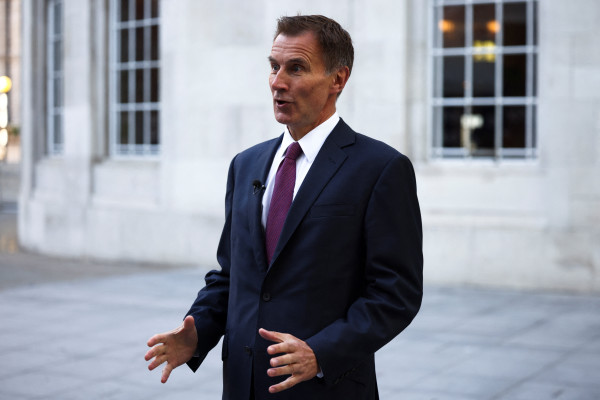

The consumer price index rose 10.1 per cent in September, driven by increases in the price of food and non-alcoholic drinks, according to the Office for National Statistics.
RPI, which measures the changes in retail prices of a basket of goods and services, as opposed to the weighted average prices tracked by the CPI, rose 12.6 per cent.
September’s CPI is one of three figures used to decide the uplift in state pensions, which under the triple lock rise with the highest figure out of inflation, earnings growth or 2.5 per cent.
Last night (October 18), prime minister Liz Truss refused to confirm that the lock will remain in place, after chancellor Jeremy Hunt said he was “not making any commitments” on the pensions policy earlier in the day.
This is despite former chancellor Kwasi Kwarteng confirming the policy will remain in place weeks earlier, former chancellor Rishi Sunak committing to the return of the triple lock in May, and Thérèse Coffey saying in March that the triple lock will be honoured for the rest of parliament.
The wages element of the lock was temporarily suspended in April this year to avoid a disproportionate rise in the state pension following the pandemic, breaking a key manifesto pledge by the Conservatives.
“[The government] will no doubt be weighing up the reaction of pensioner voters in the run-up to the next general election,” said Steve Cameron, Aegon’s pensions director.
Andrew Tully, technical director at Canada Life said: “If the triple-lock is ditched for a second year in a row, this flip-flop on policy effectively breaks the promise, and the government will need to find a way to try and appease a core part of the voting electorate.”
Speaking on BBC Radio this morning, Baroness Ros Altmann, former pensions minister, said she was “absolutely stunned” to hear that the government might suspend the triple lock for a second time.
“Of course we need to be careful with public spending, but we cannot move forward cutting state pensions, telling pensioners one minute we are promising to protect them in the middle of a cost of living crisis and then put that all at risk.
“We have to be careful.”
Pressure to cut spending
Figures from Aegon showed that the government could save around £4-5bn a year if it ditches the triple lock, as it comes under pressure to balance the country’s books.
If the triple lock is maintained, those on the full new state pension will see weekly payments rise from £185.15 to £203.85 per week (£10,600 a year) and those on the full basic state pension will see weekly payments increase from £141.85 to £156.20 per week (£8,122 a year), according to Aegon.
Relevant factors for uprating of the state pension under the ‘triple lock’
Date effective | CPI to September | Earnings growth to July | Guarantee 2.5% minimum | Used for benefit uprating |
Apr-23 | 10.1% | 5.5%* | 2.5% | TBC (10.1% if triple lock kept) |
Apr-22 | 3.1% | N/A - suspended | 2.5% | CPI (3.1%) |
Apr-21 | 0.5% | -1.0% | 2.5% | GM (2.5%) |
Apr-20 | 1.7% | 3.9% | 2.5% | Earnings (3.9%) |
Apr-19 | 2.4% | 2.6% | 2.5% | Earnings (2.6%) |
Apr-18 | 3.0% | 2.2% | 2.5% | CPI (3.0%) |
Apr-17 | 1.0% | 2.4% | 2.5% | GM (2.5%) |
Apr-16 | -0.1% | 2.9% | 2.5% | Earnings (2.9%) |
Apr-15 | 1.2% | 0.6% | 2.5% | GM (2.5%) |
Apr-14 | 2.7% | 1.2% | 2.5% | CPI (2.7%) |
Apr-13 | 2.2% | 1.6% | 2.5% | GM (2.5%) |
Apr-12 | 5.2% | 2.8% | 2.5% | Earnings (5.2%) |
Source: Aegon
The high level of inflation will also press the Bank of England ahead of its rate setting meeting in early November, said Interactive Investor’s head of investment Victoria Scholar.
“The central bank is between a rock and a hard place as it looks to curb price pressures without inadvertently adding to the risk of recession,” she said.
sally.hickey@ft.com



